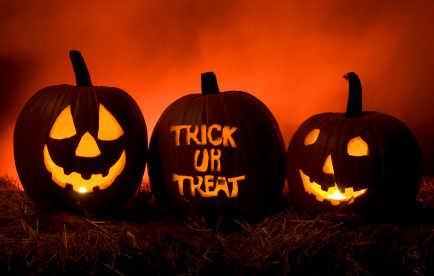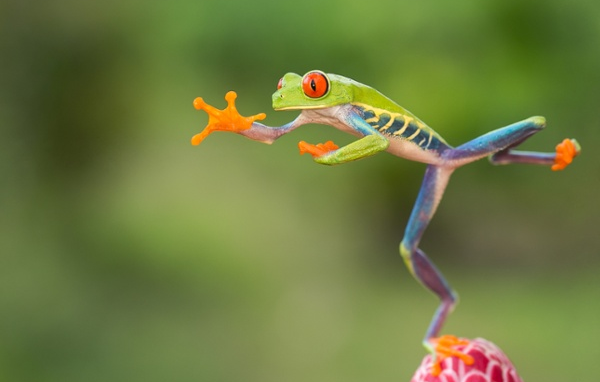Halloween: A Brief History
 While some Halloween traditions are new, the holiday itself has a long and fascinating history. Its roots go deep, and people may have been celebrating this autumn festival in Celtic times.
While some Halloween traditions are new, the holiday itself has a long and fascinating history. Its roots go deep, and people may have been celebrating this autumn festival in Celtic times.
Halloween is linked to All Saints’ Day, but some historians believe the holiday has older origins that the Church incorporated as part of its calendar. The Celtic harvest festival of Samhain divided summer from winter; it marked the time to bring livestock from summer pastures and prepare enough food for the long, cold season ahead. It was a time for feasting and bonfires, and the Celts believed it was a time in which the veil between the world they knew and that of fairies or other spirits was thinnest.
The present-day Halloween’s connection with treats could have its origins in a Celtic festival day.The name Halloween comes from a contraction of All Hallow’s Eve, a name you’ll still hear sometimes. It’s the name Christian theologians gave the night before All Saints’ Day, which was established as a holy day in the seventh century. Historically, Hallow’s Eve was the day to acknowledge all the souls that hadn’t yet found their way to heaven. The idea of ghosts and spirits being active on Halloween came from this traditional meaning of the holiday, so when you see images of ghost decorations on Halloween, you’re seeing a reference to a centuries-old belief.
Another early Hallow’s Eve tradition called souling explains why people go door to door for treats. Medieval Europeans baked soul cakes to honor the recently departed and commemorate them as their souls made their way to heaven. They prepared enough to share with neighbors and friends, and villagers would travel from home to home exchanging these small round cakes called souls. Souling was a little somber because it called to mind the souls of the departed, but it was also a happy occasion to share memories and a tasty treat with others. Soul cakes traditionally contained many ingredients that are familiar to anyone baking Halloween treats today: cinnamon, nutmeg and other warm spices graced these cakes just as they do your favorite pumpkin cookies or fudge.
Why is Halloween a costume holiday? Researchers aren’t sure. Some ascribe costumes to the Celts, and others suggest the tradition came from the fancy clothes people would wear when going souling. In early lore, costumes were seen as a disguise, a way to conceal yourself from spirits that might otherwise intend some kind of mischief. It’s possible that the ancient Celtic people dressed for the occasion on Samhain to confound stray spirits, but costumes could also have been something fun for souling villagers to wear, especially if they intended a little light mischief of their own.
The tradition of jack-o’-lanterns comes from Scotland, but it didn’t start with pumpkins. The pumpkin is a New World crop; no one in the Middle Ages in Scotland would have known what to make of the large orange gourd. They used hefty turnips instead and carved them into strange or spooky faces, hollowing them out to use as lanterns as they went from house to house on souling night. When Halloween traveled with Scottish settlers who came to America, they embraced the use of them to make pumpkin lanterns since they easier to carve and already conveniently hollowed out for a candle.
Halloween wasn’t associated with witches or fiends originally, but the Puritans frowned on it because they considered the history behind it too Catholic for their tastes. The Catholic church considered All Hallow’s Eve the time when souls left purgatory to find heaven, but the Puritans didn’t believe in the concept of purgatory and reasoned that any spirits lingering must therefore be wicked ones. While they might not have enjoyed Halloween as a festival day, they did give later generations of trick-or-treaters great ideas for witch and goblin costumes. This history guides our Halloween inspiration today.
Halloween history is almost as much of a treat as candy corn and caramel apples. This year, take a few minutes to reflect on the history of one of our most beloved holidays.
Image Credit: http://auburnmassdaily.com






2 Responses
[…] Halloween: A Brief History (lakeside.com) […]
[…] Halloween: A Brief History […]